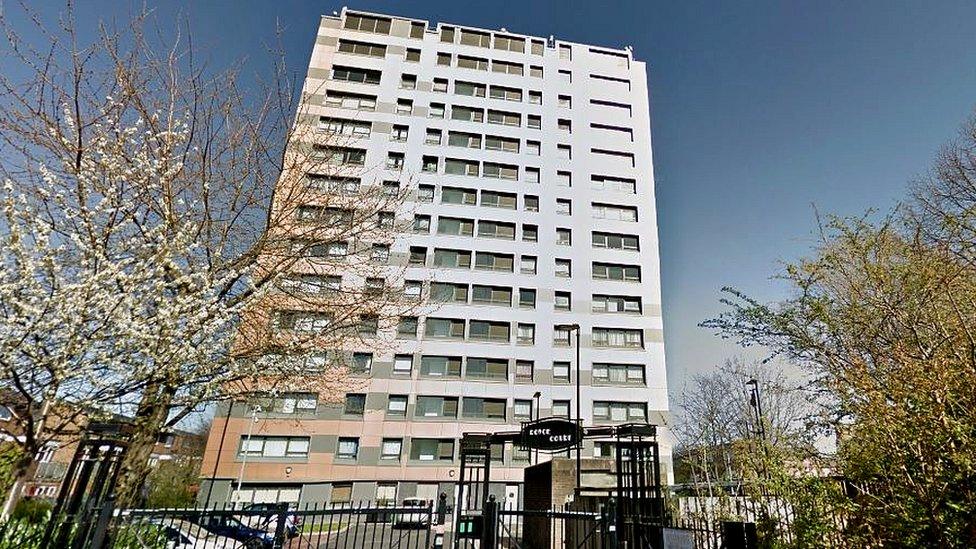Grenfell cladding fear left woman 'scared to live' in Salford flat
- Published
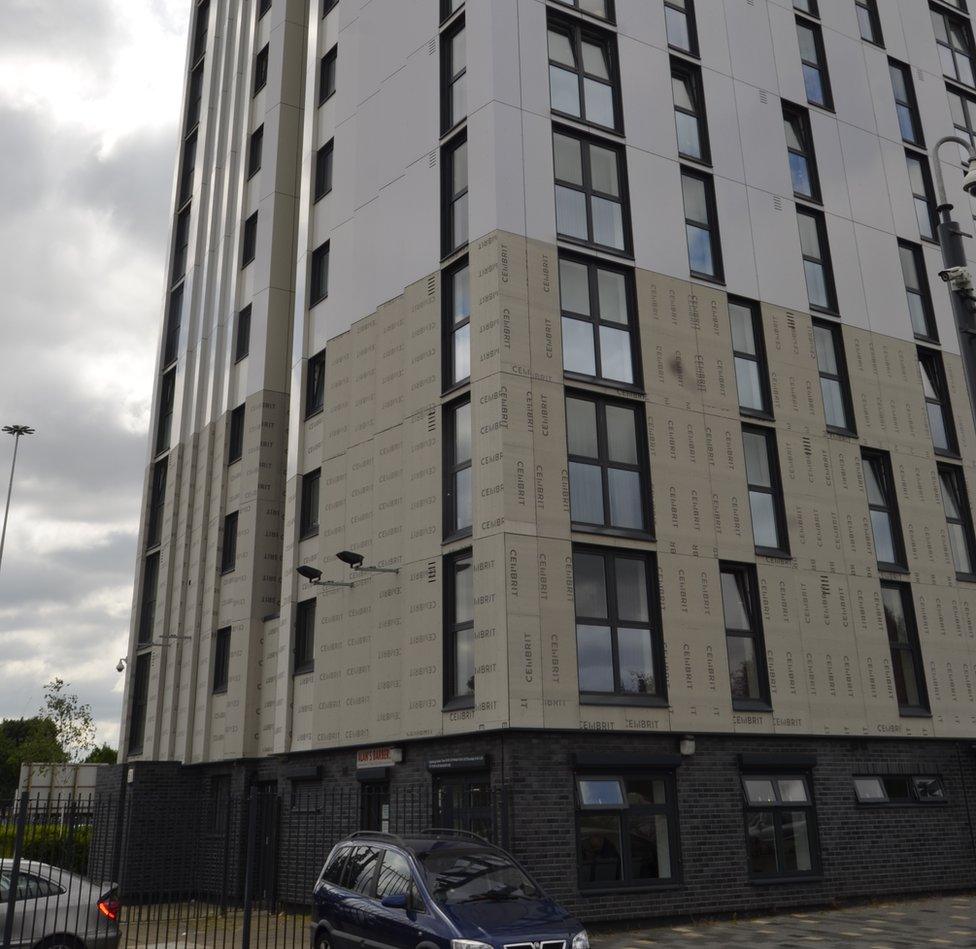
Work on the cladding was paused in 2017 with only three floors having had it removed
A resident of a tower block clad in material similar to that on Grenfell Tower has said waiting for its removal has left her frightened and depressed.
Elizabeth Okpo, who lives in Salford's Spruce Court, said she had been "scared to live" in her flat since the council told her of the issue in July 2017.
Salford City Council paused cladding removal in the same month after three floors to find a "permanent solution".
A council spokesman said work on the remaining 18 floors had now "resumed".
Seventy-two people died in the Grenfell Tower fire in London in June 2017.
A report into the tragedy suggested cladding was incorrectly installed and the primary cause of the "catastrophic" spread of the fire.
'Sleep with the Bible'
Ms Okpo said she and a number of other residents had asked to be moved after learning about the cladding issue, but had been refused by the housing association which manages the block for the council, Pendleton Together.
Figures released in March showed inspections of residential high rises in Greater Manchester found more than 75%, including the nine managed by Pendleton Together, failed to meet fire safety standards.
The 39-year-old, who lives on the 13th floor, said it was a case of "being scared to live in your home".
"I go to sleep with the Bible and wake up thinking 'thank God I'm alive'."
She said she was especially worried for neighbours with disabilities and families with children on high floors.
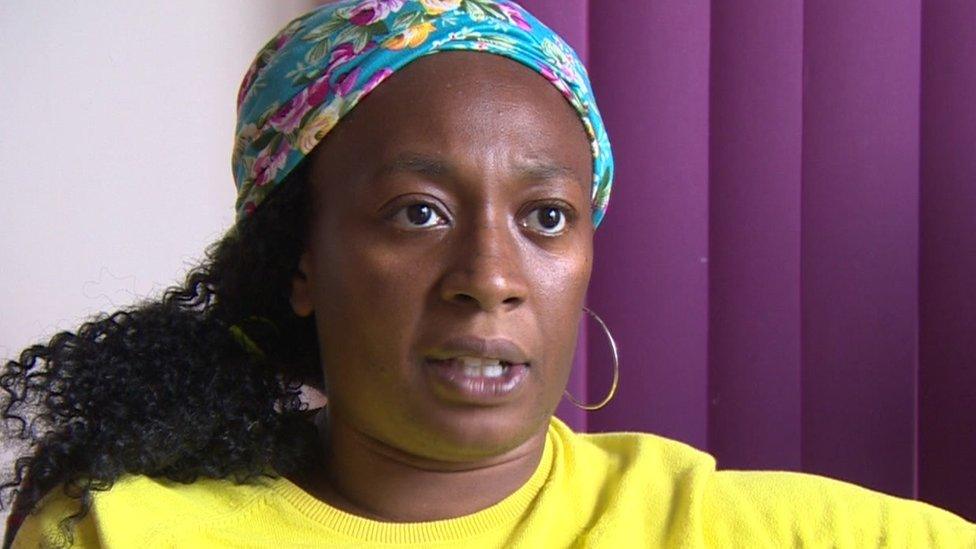
Ms Okpo said she had been "scared to live" in her own home
The housing association said it could not comment on individual requests to move, but added that "clear procedures are in place if tenants request to move, which are based on a number of complex factors".
Director of neighbourhoods Amanda Garrard said tenant safety was "a top priority" and the association was "working... to remove cladding, install sprinklers and further alarms".
"We began removing cladding immediately just under a year ago and began implementing a full plan to remove all the remaining cladding earlier this month."
A council spokesman added that work had been "paused because we were working on finding that permanent solution and wanted to minimise disruption to residents".
In May, the government pledged to fund the removal and replacement of unsafe cladding for councils and housing associations.
- Published5 April 2018
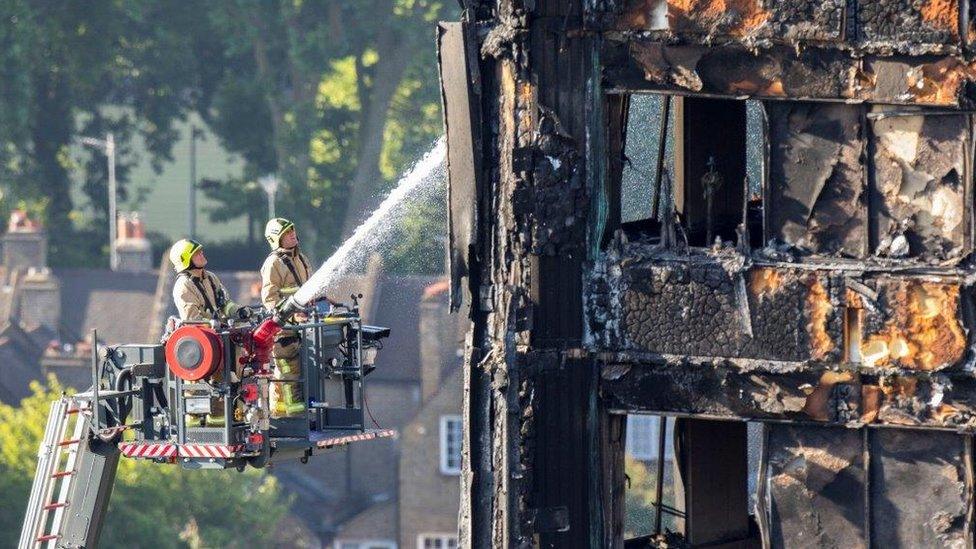
- Published20 March 2018
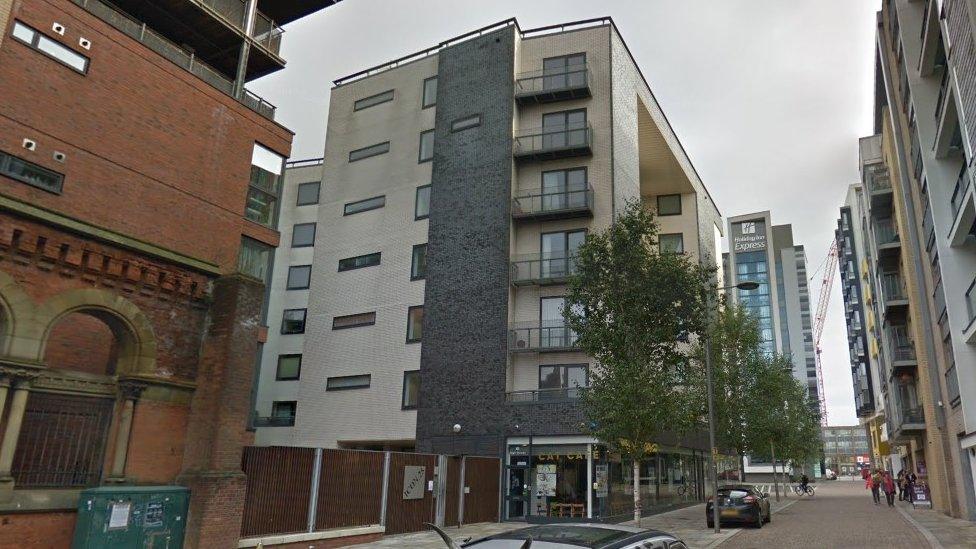
- Published22 October 2017
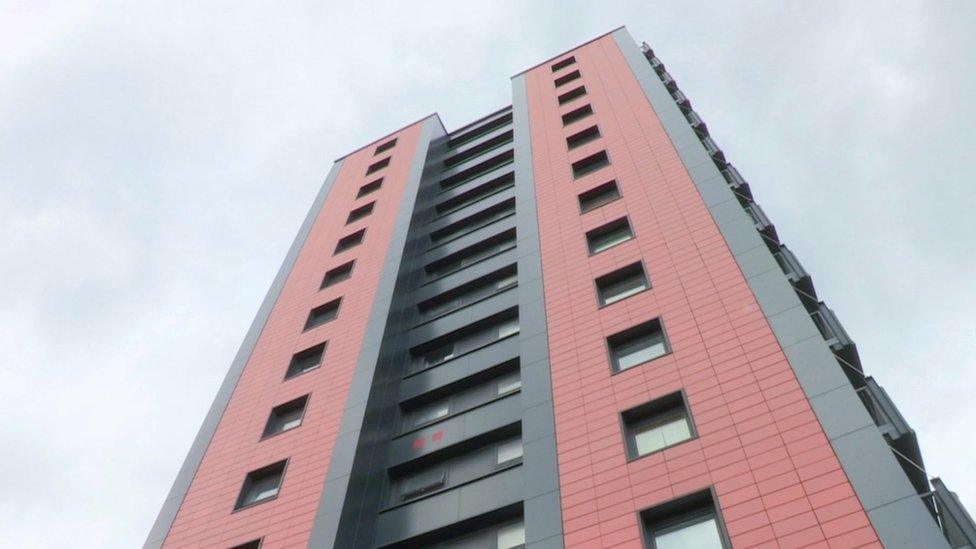
- Published14 July 2017
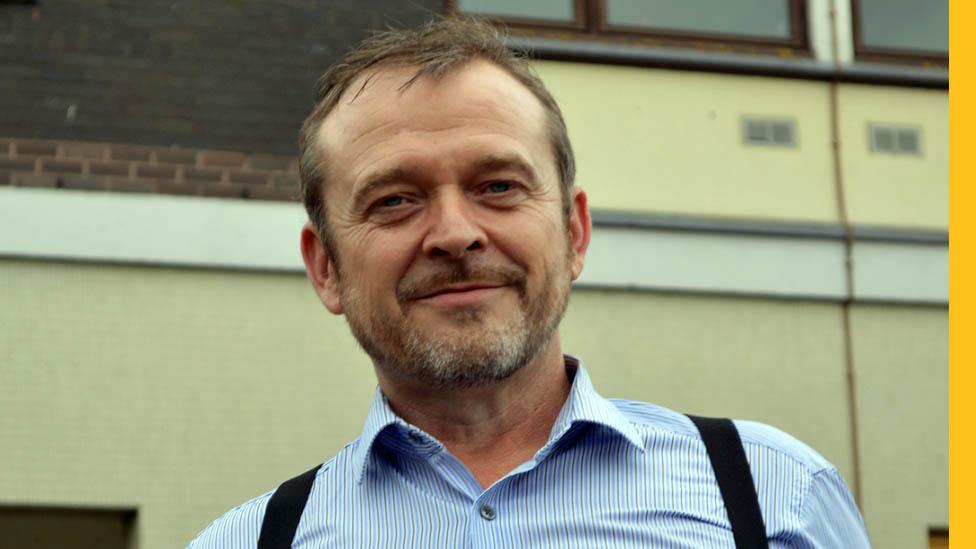
- Published7 July 2017
